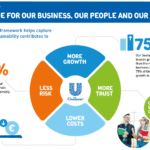Is Affiliate Marketing Legitimate or a Scam? Distinguish Fact from Fiction.
Let’s face facts. You come here since you have witnessed it all, right?
Gurus posing next to rented Lamborghinis and promising you’ll make $10,000 in your first month while sleeping on a beach saturate your Instagram feed. You have clicked on those ads—the ones featuring a man circling his enormous PayPal payout in red.
It appears slick. Too nice to be true. And your gut is screaming one question: Is affiliate marketing just one big scam?
I get it. Once in your very shoes, I was skeptically drenched.
Having spent years in this sector, I am here to provide you with the truthful, no BS answer you won’t get from those glitzy YouTube commercials.
Affiliate marketing is 100% legitimate, but it is encircled by a large ecosystem of scams and false claims.
Consider it this way: Though real estate is a respectable profession, a dishonest realtor attempting to persuade you to buy a swamp as waterfront property is a con artist. The poor actors inside the industry are the issue, not the sector itself.
This article will help you to differentiate between the two. We will explain why some people believe it to be a scam, highlight the genuine frauds to be avoided, and demonstrate what actual, sustainable affiliate marketing looks like.
Why does affiliate marketing have such a terrible name?
The model itself is rather strong. Firms like Amazon, Target, and Best Buy run enormous, multibillion-dollar affiliate programs. They wouldn’t risk their name on a fraud.
The smell of deception arises from a few main sources:
1. The GetRichQuick Hype Machine
This is the primary offender. Unscrupulous coaches and gurus exploit people’s desperation and economic aspirations using marketing funnels. They overhype the results, underplay the work, and sell overpriced courses promising secrets the pros already know. It is the fraudsters, not the affiliate model itself.
2. The Product is a fraud in of itself
Promoting a dubious weight loss pill that doesn’t work, a bogus investment scheme, or a dubious make money course would make you an active participant in a con. The affiliate model is merely the vehicle of the fraud. Real marketers stay away from these deals.
3. Negative User Experience
Everyone has been on a site where popups assault you before you can even read the piece and every other word is a vivid, flashing affiliate link. This gives the whole practice a terrible reputation, breaks trust, and feels like spam.
4. Basic Misunderstanding
Many people miss the great value that true affiliate marketers provide. They examine products, develop thorough instructions, write extensive reviews, and address actual issues. Generating a good customer for a firm entitles one to a just commission.
Thus, what does an actual affiliate marketing firm seem like?
Put the Lamborghini aside for a little. Let us address truth.
Simple value exchange underpins a respectable affiliate business:
Therefore, how does a genuine affiliate marketing company look?
For a moment, let off the Lamborghinis. Let’s discuss truth.
Simple value exchange underlies a real affiliate business:
1. Your website, YouTube channel, or social media audience is aimed at a particular area (e.g., sustainable life, software for graphic design, hiking equipment).
2. You produce highly useful material that draws trustworthy audience. This may be a video on How to Install a DIY Rain Barrel or a Best Laptops for Video Editing in 2024 manual.
3. You automatically suggest items you really use and like. On a site like Amazon, Lowe’s, or a specialty store, you have a unique link to that item.
4. When someone buys through your link, you get a little commission. The client pays the same amount. The store is pleased since they gained a consumer they would not have otherwise had.
It’s a real win win.
• The consumer benefits because they located a wonderful item on your reliable advice.
• The business wins since they made a sale.
• You win since you were paid for adding value.
The internet functions this way. For many professional reviewers, tech sites, mommy bloggers, and DIY aficionados, it forms the basis of income generation.
How to Detect an Affiliate Marketing SCAM a Mile Off
Let’s arm you to spot the red flags now that you know what’s real.
Red Flag 1: The Enticement of Quick Success and Simple Cash
Run if a course or guru promises you’ll generate a certain income in a given period with little work. Ranking content on Google and developing an actual audience call consistency, time, and effort.
Red flag 2: emphasizes the Commission rather than the value.
Though they never mention helping anyone, scammers discuss high-ticket offers and conversion rates. Authentic marketers are preoccupied with the problems of their audience rather than the commission rate.
Red Flag 3: They want you to publicize everything.
Ethical marketers are selective. They won’t advertise anything they haven’t investigated or don’t believe in. Advocating for a scammy approach is someone telling you to just advertise the best-paying offer regardless of quality.
Red Flag 4: Only proof is the Guru.
The only evidence of success is the opulent lifestyle of the guru. No authentic student case studies, clear income statements, or confirmed results are available. They are often renting their automobiles and using Airbnb images for their homes.
Red Flag 5: They drive you into their downstream.
This distinguishes a pyramid scheme. Should the main means of income be to enlist others to purchase the same course you just did, it’s a pyramid scheme masquerading as affiliate marketing. Selling products to customers is what honest affiliate marketing is about; it’s not about enlisting rivals.
The Verdict: Real Career Route or Scam?
A valid, strong, and long-lasting corporate strategy is affiliate marketing.
It is not a get rich quick strategy. This is a way of get paid for delivering actual value.
It demands your being:
• A producer of content
• An SEO student
• A reliable voice
• A business owner patient
The affiliate model is not the fraud. The fraud is the falsehood it is simple.
Affiliate marketing is one of the most easily accessible and fulfilling online enterprises you can launch if you’re ready to put in the effort to construct something actual—that is, to learn, to create, and to assist others.
You will only find con artists ready to steal your money if you are looking for a magic button to tap for quick wealth.
Frequently Asked Questions Section (Targeting People Also Ask Questions)
Q: Is Amazon Affiliate Marketing a fraud?
A: Certainly not. Among the most venerable and authentic affiliate programs available globally is Amazon Associates. You earn a modest commission for sending qualified traffic to Amazon. It is entirely above board.
Q: How much do affiliate marketers actually earn?
A: Income fluctuates dramatically. Most novices make $0 for the first several months. Serious marketers working part-time can make several hundred to a few thousand dollars monthly. Six or seven digits per year are possible for top-tier experts managing major sites. Anyone promising specific earnings is likely lying.
Q: Affiliate marketing calls for a website.
A: Although social media may be used, a website is the most valuable asset you own. You have control over your online property. SEO and developing long-lasting, natural traffic depend on it.
Q: Has affiliate marketing reached saturation?
A: Although it’s competitive, it is not saturated. Why? Every day new items are released and fresh people join the internet with queries, hence this is so. There’s always space for a fresh viewpoint, a better tutorial, or a more honest review. Saturation offers justification.
Finally
Then is affiliate marketing real? Yes.
Could it feel like a scam? Yes also, thanks to the poor actors.Avoiding affiliate marketing shouldn’t be your aim. Your aim should be to stay clear from the crooks who have infested the field.







